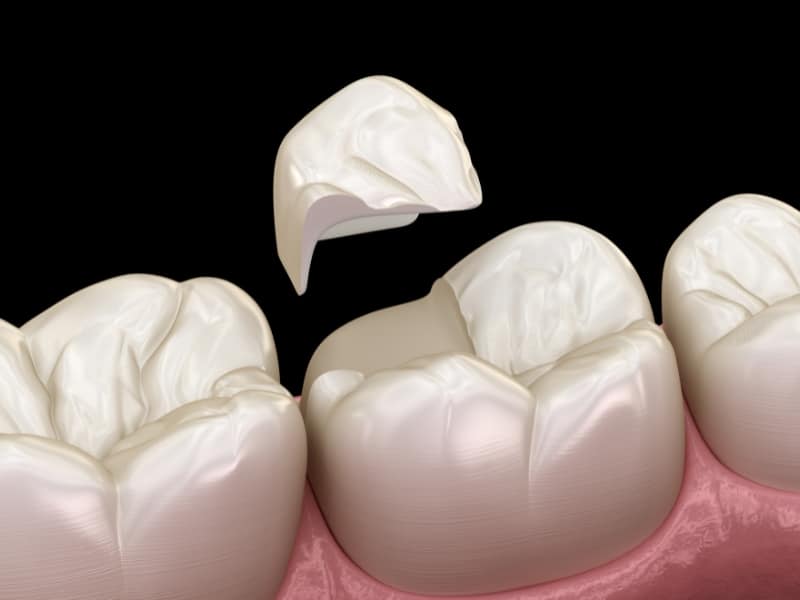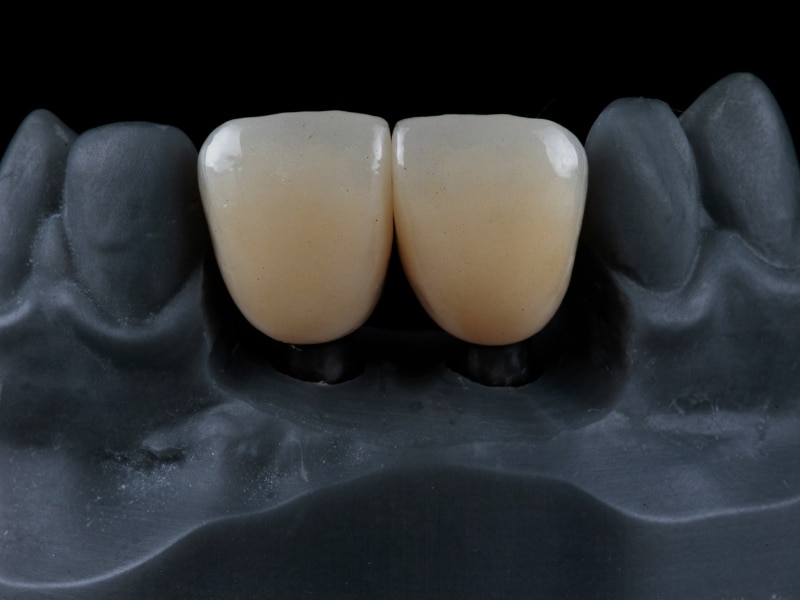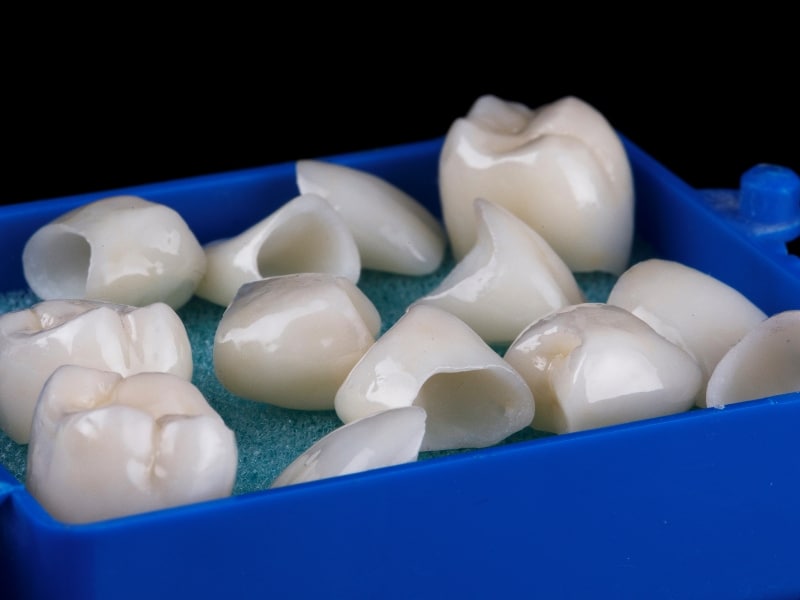Chipping a tooth can initially seem like no big deal. However, even a small break can expose the inner structure and open the door to more significant issues. Leaving it too long not only affects how your smile looks, but it can also lead to pain, decay, and structural damage that’s harder to fix down the track. This article explores when to act, why timing matters, and how a crown for chipped tooth damage can help you avoid long-term problems.
What are the risks of leaving a chipped tooth untreated?
It’s tempting to ignore a small chip if it’s not hurting right away. However, minor damage can quickly escalate into more serious dental problems. A chipped tooth creates an opening that exposes the softer layers beneath the enamel, increasing the risk of infection and decay. Ignoring it can trigger a chain reaction of dental issues:
- Tooth sensitivity can develop as the dentin layer becomes exposed
- Decay may set in quickly if bacteria enter through the crack
- The tooth structure becomes weaker, making further breakage more likely
- Gums and nearby teeth may suffer inflammation or misalignment
Acting early often means a more straightforward solution. One of the most effective ways to prevent further damage is to protect the tooth with a reliable dental crown for chipped or damaged teeth before the problem spreads or deepens.
How does a damaged tooth affect your daily comfort?
Pain isn’t always immediate with a chipped tooth, but subtle discomfort can sneak up on you. Everyday actions like chewing, talking or even breathing cold air can become frustrating. A damaged tooth impacts you more than you might think:
- Chewing becomes uneven, creating strain on your jaw or other teeth
- Cold or hot drinks may cause sudden, sharp jolts of pain
- Speech can change slightly if the chip alters tooth alignment
- You might feel self-conscious about smiling or laughing
These minor annoyances tend to build up. You might not realise how much you’re adjusting your habits to avoid discomfort. Left unaddressed, this compensation can cause your bite and jaw alignment to become misaligned over time. That’s one reason why delaying treatment for a chipped tooth often leads to broader oral health issues, extending beyond the initial damage.
Why delaying a crown for a chipped tooth risks long-term damage?
When a crown is put off, the tooth remains vulnerable. Enamel doesn’t heal on its own, so even a small chip leaves the door wide open for trouble. Over time, that chip can become a crack, or the tooth might break even further under normal pressure. There’s also the risk of:
- Tooth decay is setting in around the break, speeding up enamel loss
- Infection reaching the tooth pulp and triggering abscesses
- Damage spreading to neighbouring teeth or gums
- Ongoing inflammation is weakening the surrounding bone structure
A dental crown acts like a helmet, protecting the entire surface and restoring strength. Avoiding this protective measure invites complications that are harder to treat and often more costly in the long run. In some cases, untreated trauma can mirror how dental injuries can lead to long-term complications well beyond the initial site.

Which crown materials are best for restoring a chipped tooth?
Not all crowns are created equal—each material offers unique benefits depending on the size, location, and visibility of the chipped tooth. Choosing the right crown ensures it lasts while blending in naturally with your smile. Here’s a quick breakdown:
| Crown Material | Durability | Aesthetic Match | Best For |
| Porcelain | Moderate | Excellent | Front teeth |
| Zirconia | High | Good | Back teeth |
| Porcelain-fused-to-metal | High | Very Good | Versatile use |
| Gold alloy | Very High | Low | Molars (hidden) |
Considerations like how much of the tooth remains intact and your bite pressure also play a role. Porcelain offers a natural look, but may chip under heavy force. Zirconia crowns are tough as nails, but slightly less lifelike in colour. This is where a dentist’s guidance is key—they’ll match form and function based on your individual needs.
How is the right crown for a chipped tooth chosen?
Every chipped tooth tells a different story, and no one-size-fits-all fix exists. Your dentist assesses not only the damage but also how the tooth functions within your overall bite and how visible it is when you speak or smile. The right crown depends on several factors:
- Location of the chipped tooth (front vs back)
- How much of the tooth structure is still strong
- Your bite pressure and wear patterns
- Aesthetic expectations or personal preferences
It’s also important to plan for the long haul. Crowns can last a decade or more with proper upkeep, which is why many dentists consider habits such as grinding or clenching. Aftercare is crucial, which is why you should understand more about maintaining dental crowns through proper hygiene—it’s what keeps them in top condition.

Can a dental crown restore both function and appearance?
Absolutely. A well-placed crown does more than protect—it restores your bite and smile with precision and accuracy. Done properly, it’s almost impossible to tell a crowned tooth apart from a natural one. Here’s how a crown brings it all together:
- It reinforces the tooth structure to handle normal chewing
- Shape and size are matched to blend seamlessly with the surrounding teeth
- Colour is customised for a natural, undetectable finish
- It seals off cracks, preventing further wear or decay
Many people find they stop thinking about their chipped tooth altogether once the crown is in place. It no longer interrupts their meals, speech, or confidence. Crowns are especially effective when tailored to both aesthetics and durability, ensuring both functionality and a visually appealing appearance.
Final thoughts
Waiting too long to crown a chipped tooth opens the door to more significant problems, many of which can be avoided with early intervention. A timely crown not only preserves the structure of the tooth but also ensures your overall comfort and health. If you’re unsure where to start, you might want to find out what Marsfield Dental Care can do for your teeth.

